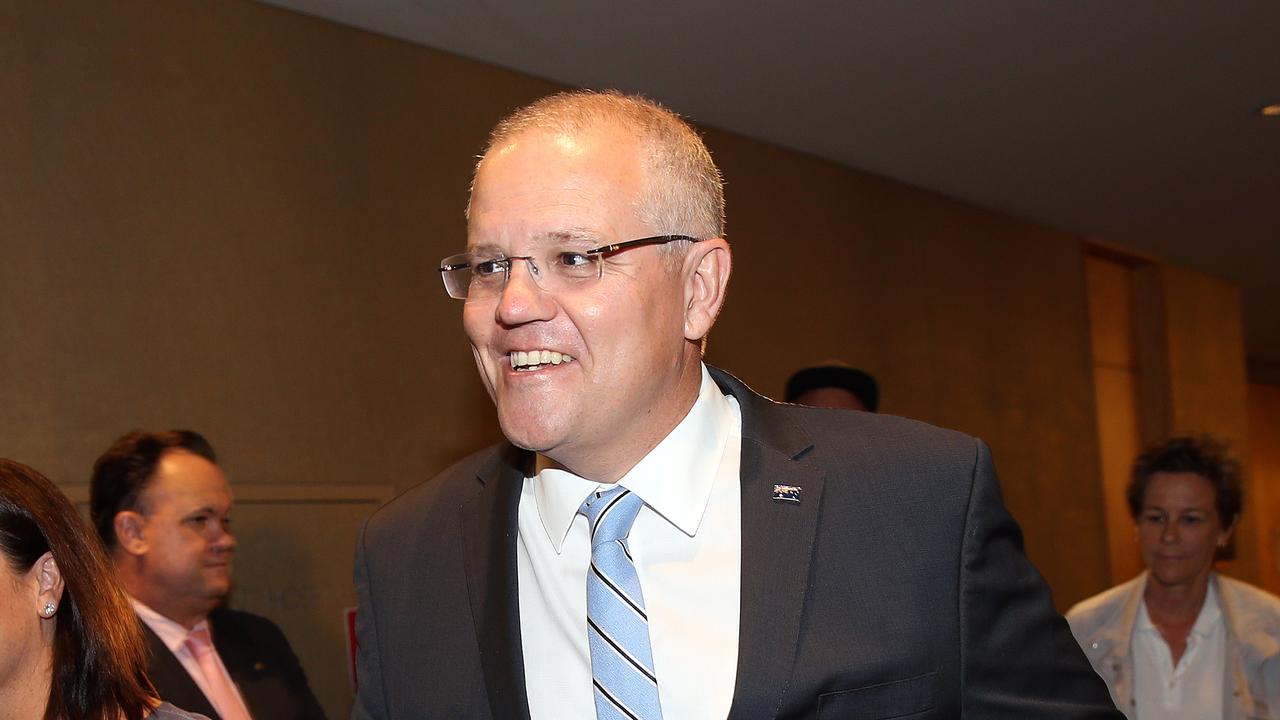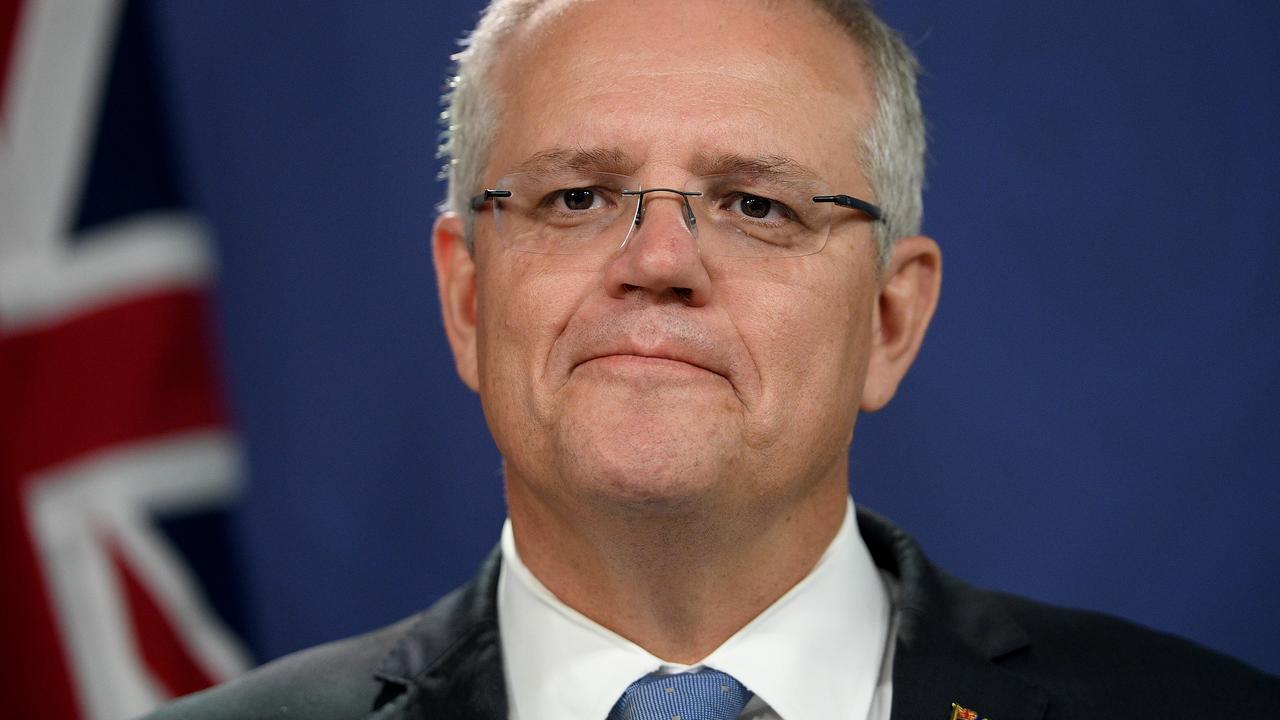
Malcolm Turnbull, welcome to government.
After being Prime Minister for just shy of three months there was a clear sense of relief as Turnbull called an end to the last parliamentary question time for another politically tumultuous year.
It was emblematic of the change in tone in parliament in recent days that not only was Turnbull shutting down question time, he was doing so having gagged Labor for trying to censure him over the behaviour of his handpicked Special Minister of State, Mal Brough, who is under investigation by the federal police.
Against a backdrop of a continuing vendetta of counter-leaking among his colleagues designed to damage or defend Tony Abbott, the failure of key legislation in the Senate, a growing backlash from conservative Coalition MPs and the Liberal Party membership, a spectacular defection to the Nationals that is expected to force a ministerial shuffle and a mounting pile of work because of overseas travel, Turnbull was fortunate the parliament was rising for the long summer break.
It was a ragged end to the Coalition’s second year in government and not what was expected of the new consultative and efficient Turnbull regime.
While some of these pressures are the result of decisions Turnbull has made and some are not, all require definite action from the leader who promised the party and the voting public a dramatic change.
Whether it is accepting he has made a mistake himself, imposing his authority on senior colleagues, trying to allay conservative concerns and better managing the Coalition relationship, the time has come for Turnbull to address the daily challenges of being Prime Minister.
After a relatively smooth leadership change on September 14, compared with Labor’s last two leadership coups, and a meteoric restoration of the Coalition’s standing in the polls, Turnbull had succeeded in changing the political mood and lifting national confidence.
He was doing well on the international circuit and clearly enjoyed being the centre of international affairs.
There was a particular satisfaction at being in Paris for the climate change conference, even if it wasn’t signing up to his own original policies.
But events and reality catch up quickly with new leaders and when Turnbull finally hit the ground in Canberra on Wednesday he was tired — tired of travel and facing a backlog of decisions, legislative setbacks, lingering infighting over Abbott’s removal, a full-blown ministerial crisis, a Labor opposition questioning his judgment and a public expression of the conservative resentment breaking out within and between the Coalition partners.
On that afternoon of September 14, Turnbull set out a series of reasons for his grave decision to remove a first-term Liberal prime minister and leader of seven years’ standing.
They were essentially: “The prime minister has not been capable of providing the economic leadership our nation needs; he has not been capable of providing the economic confidence that business needs.
“We need a different style of leadership. We need a style of leadership that explains those challenges and opportunities; explains the challenges and how to seize the opportunities.
“We have lost 30 Newspolls in a row. It is clear that the people have made up their mind about Mr Abbott’s leadership.
“We also need a new style of leadership in the way we deal with others, whether it is our fellow members of parliament, whether it is the Australian people. We need to restore traditional cabinet government. There must be an end to policy on the run and captain’s calls. We need to be truly consultative with colleagues, members of parliament, senators and the wider public.”
Turnbull has been immediately successful in overturning the losing Newspolls and building business confidence. Since Turnbull took over the Coalition’s Newspoll standing has lifted seven percentage points in primary vote from 39 to 46, reversed the two-party preferred standing to 53 per cent for the Coalition and 47 per cent for Labor and his satisfaction has doubled from Abbott’s 30 per cent to 60 per cent, while Bill Shorten’s four-point lead over Abbott as preferred prime minister has been replaced with a Turnbull lead of 49 percentage points.
Business and consumer confidence have risen and the Coalition has dominated Labor in parliament.
Turnbull and Scott Morrison also have been the beneficiaries of better than expected growth from the September quarter, when Abbott and Joe Hockey were in charge.
Turnbull has maintained a hard line on the most successful policies of Abbott — turning back people-smugglers’ boats, terror laws, defence commitments, climate change targets and a plebiscite on same-sex marriage — and contained disappointment over unfulfilled expectations about his own agenda.
The Turnbull government has been able to pass legislation through the Senate doing a variety of deals with Labor, the crossbenchers and the Greens, and is producing an innovation statement on Monday that is expected to be “huge”, although may lack immediate benefits for the ordinary voter.
But simultaneously, particularly while Turnbull has been overseas for almost three weeks out of the past four, the harsh repercussions of the leadership challenge and the price Turnbull has had to pay to gain support for removing Abbott have emerged.
While Abbott hasn’t conducted a campaign of damaging leaks such as that which hurt Julia Gillard, he and his fellow thwarted conservatives are publicly pitching policy positions on terrorism and security that challenge the rhetoric of Turnbull, Julie Bishop and new Defence Minister Marise Payne.
On the other side, the continued leaking of confidential meetings and transactions over the leadership plotting, designed to destroy or tarnish Abbott’s legacy and exclude Peter Dutton, an Abbott supporter and hardline conservative, from the national security committee, continues to anger conservatives, even beyond those who voted for Abbott.
Turnbull’s response to these bitter recriminations on his return from Paris was to urge all his colleagues to “stop speaking about ourselves” — Abbott’s own forlorn appeal as his leadership was undermined.
Turnbull does not wish to continue these old fights but can’t seem to stop his senior colleagues bent on the destruction of Abbott.
Indeed, in his Christmas message to parliament on Thursday, Turnbull went out of his way to acknowledge how much was owed to Abbott as prime minister. This followed his personal approach to Abbott and a public stepping back from criticism of Abbott’s position on sending troops to Syria to fight Islamic State.
Ian Macfarlane’s surprise move to defect to the Nationals as a way of getting back on to the frontbench is largely driven by personal ambition to become a minister again but is representative of the feeling of conservative exclusion and the belief that Turnbull is not being “truly consultative with colleagues” — the complaint maverick conservative Liberal senator Cory Bernardi made as he crossed the Senate floor late Thursday.
The defection also has shown the depth of suspicion among Nationals MPs about Turnbull’s longer-term plans and reinforces the Nationals’ conviction on the need for a concrete, written and enforceable Coalition agreement with Turnbull.
It has to be remembered that the Nationals did not get a vote in the Liberal challenge, although overwhelmingly they supported Abbott’s conservative position.
Another reality intrusion on Turnbull’s management of government is the time he has to spend overseas.
There is no doubt his absence allowed the Brough recriminations to gather dangerous momentum and that not having Turnbull in the Prime Minister’s chair while Brough foolishly talked himself, and his leader, into deeper trouble as he contradicted public statements and dissembled to parliament made a bad situation worse.
Brough is part of the price Turnbull paid for the leadership. He now faces the prospect of repudiating his own judgment, appearing to be unable to control a junior minister, and he also runs the risk of defending and holding on to Brough beyond what is appropriate or acceptable to the public.
It is similar to when Abbott was accused of holding on to Bronwyn Bishop as she was besieged over the extravagant use of a helicopter. This inaction was one of the main reasons Brough and his ilk used to justify supporting Turnbull and removing Abbott.
Concerns about these pressures are also affecting Turnbull’s decisions about travel. There was a strong argument mounted that Turnbull, already having accepted an invitation to go to Washington to see Barack Obama early next year, should jettison a promised trip to Japan this month.
Keen not to make a similar mistake towards a Japan visit that Kevin Rudd made in his first trip overseas, Turnbull was determined to visit Tokyo to send a signal of solidarity. It also had a practical side as far as the $50 billion submarine bid was concerned because there was the impression that Abbott had an understanding with Japanese Prime Minister Shinzo Abe that the strategic argument of strengthening defences ties between Japan, the US and Australia would give Japan a priority.
“Japan Inc” is so committed to the success of the Japanese bid that Australian officials have been told the Japanese government has told Mitsubishi the bid is not to be framed with profit as the priority.
Indeed, some Japanese have told Australian representatives that the seeming success of the submarine bid was so surprising that they felt they had “gone fishing and caught a whale”. Originally the plans were for Turnbull to spend a few days in Japan to cement the political relationship and to look at the submarine project himself.
Combined concerns about international distraction, the need for domestic focus and the danger of Japan’s other whaling decision would overwhelm the visit have led to a trimmed-down lightning visit as Christmas looms.
The need for a domestic focus and a concentration on decision making and economic priorities was one of the complaints about the Abbott government that emerged at this time last year, after the overseas summit season.
When Turnbull said three months ago he was moving against Abbott because of a lack of economic leadership and the need to lift business confidence, he probably didn’t plan to spend almost a third of the next three months away.
Nor would he have envisaged having to defend Brough, who had given an undertaking that all things were clear, facing a ministerial shuffle through a sacking or upheaval with the Nationals agreement, and using Abbott’s words to quieten his own victorious backers, who threaten to whip the conservatives into a frenzy of recrimination.
That’s what being Prime Minister is about. Welcome to government.




To join the conversation, please log in. Don't have an account? Register
Join the conversation, you are commenting as Logout